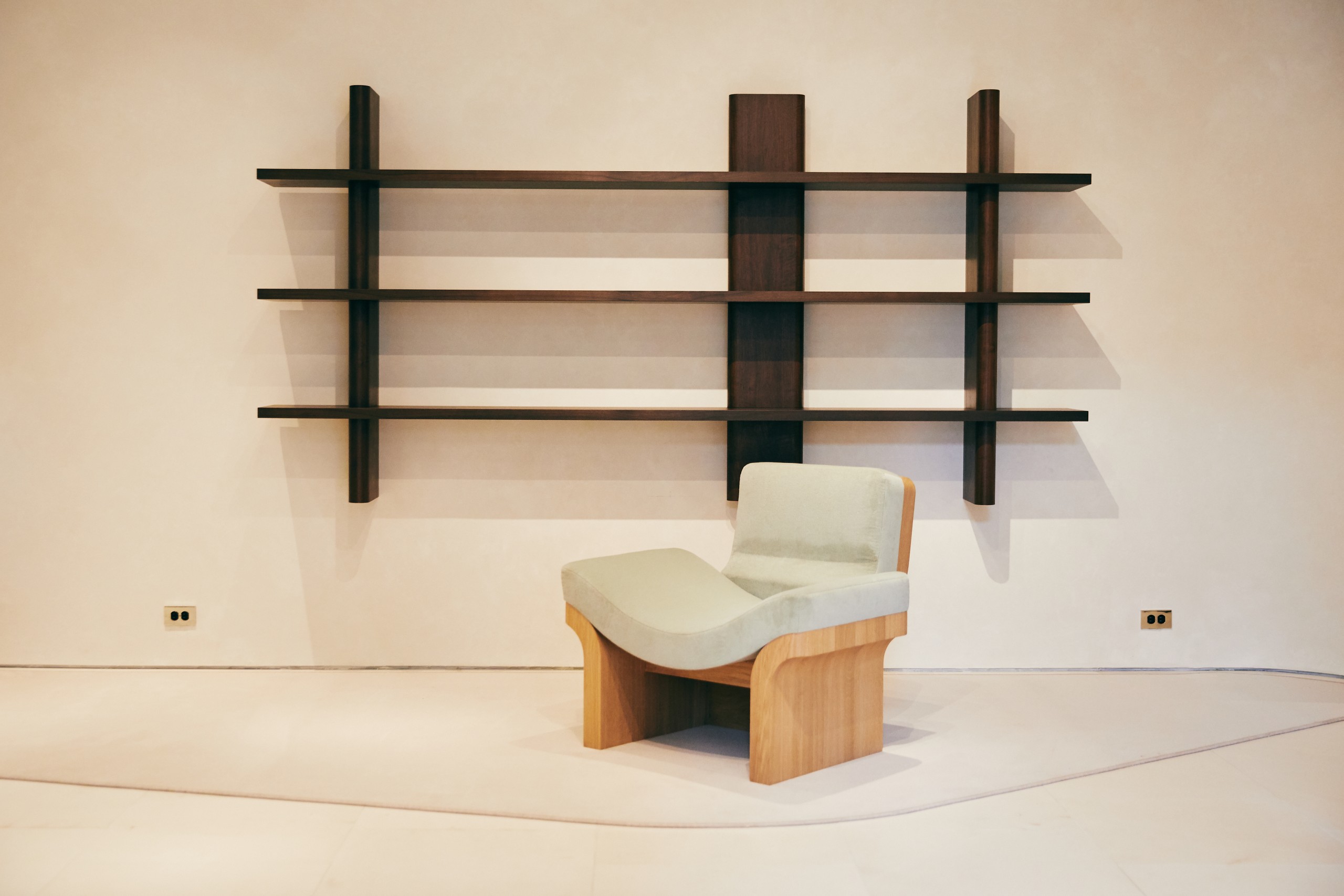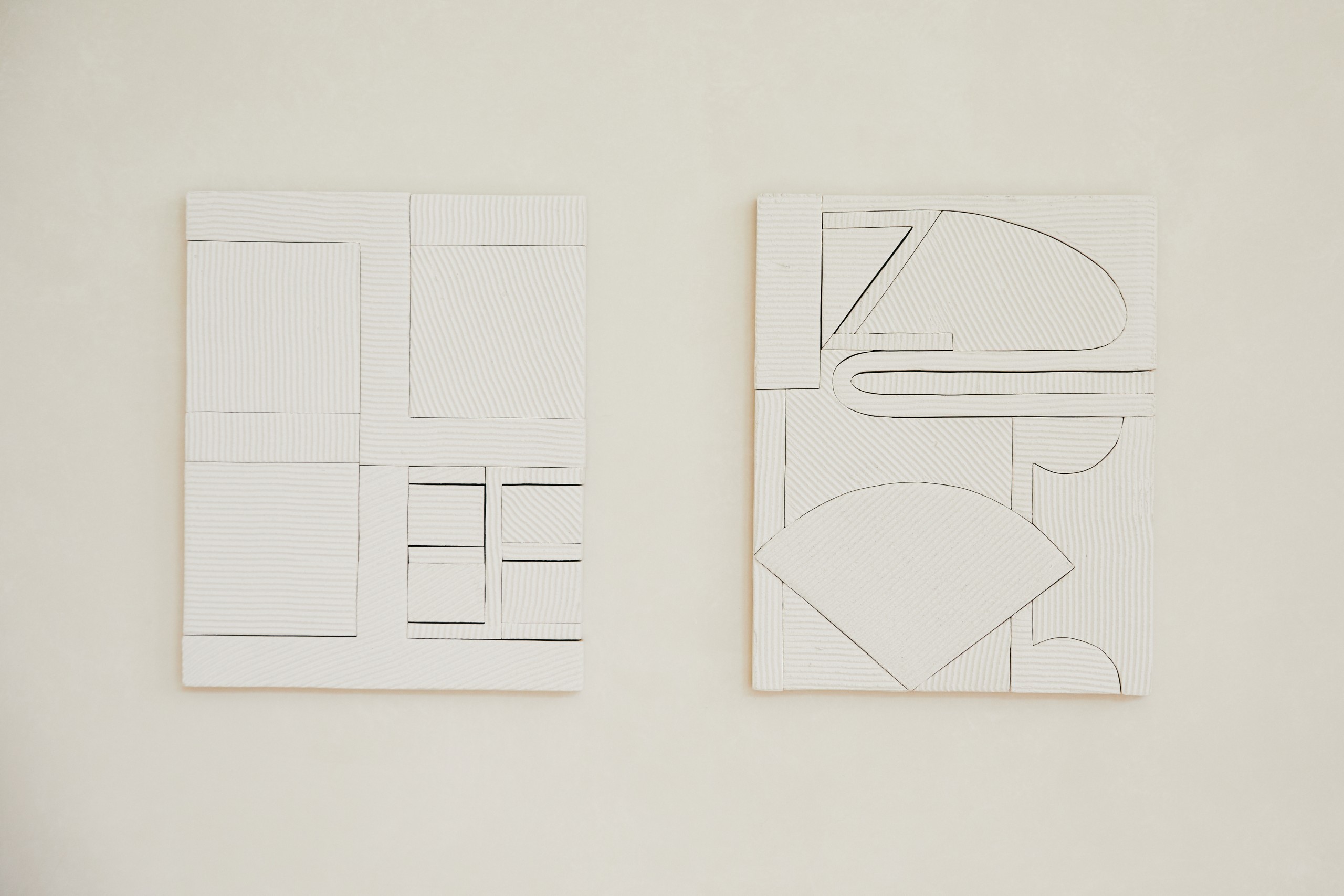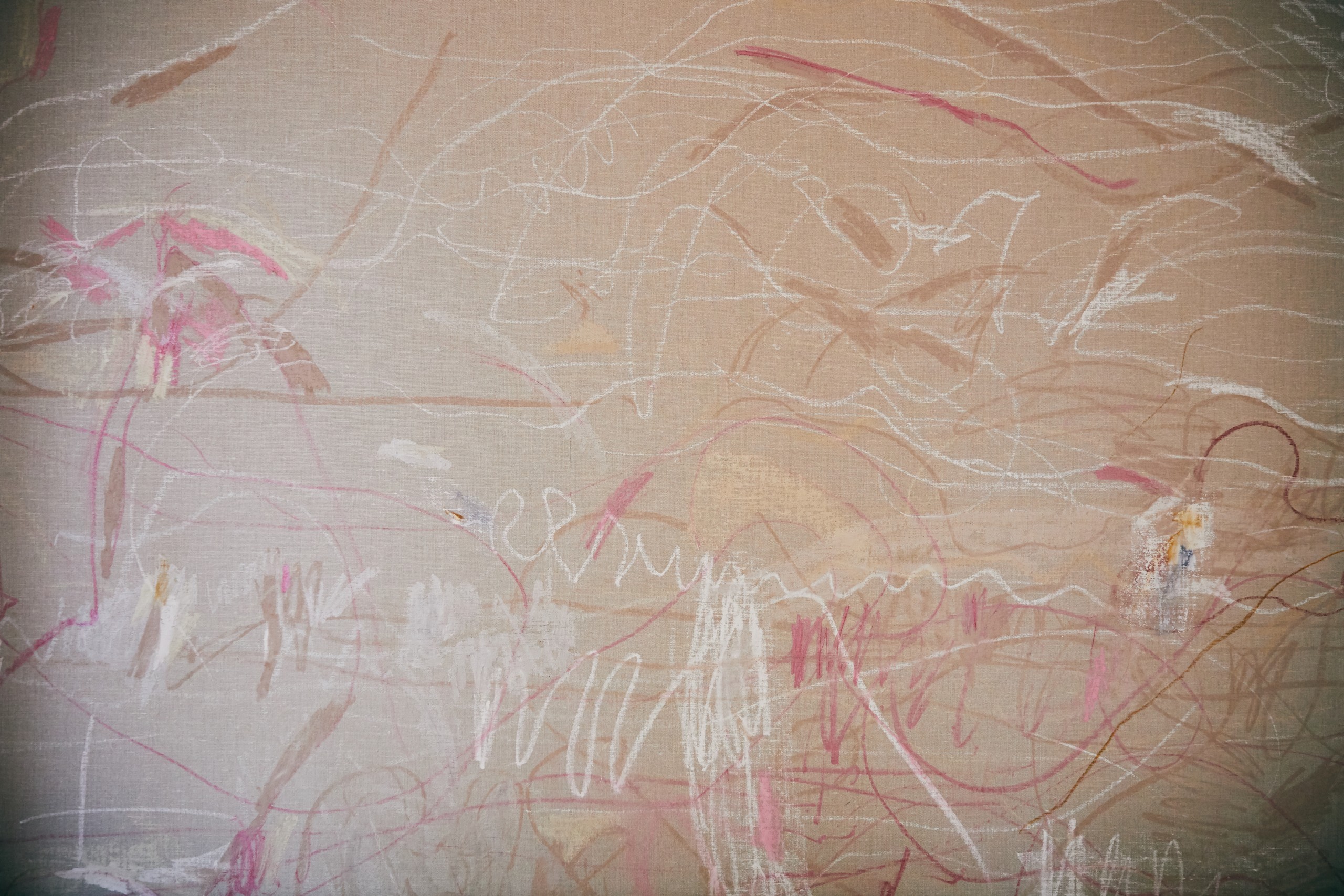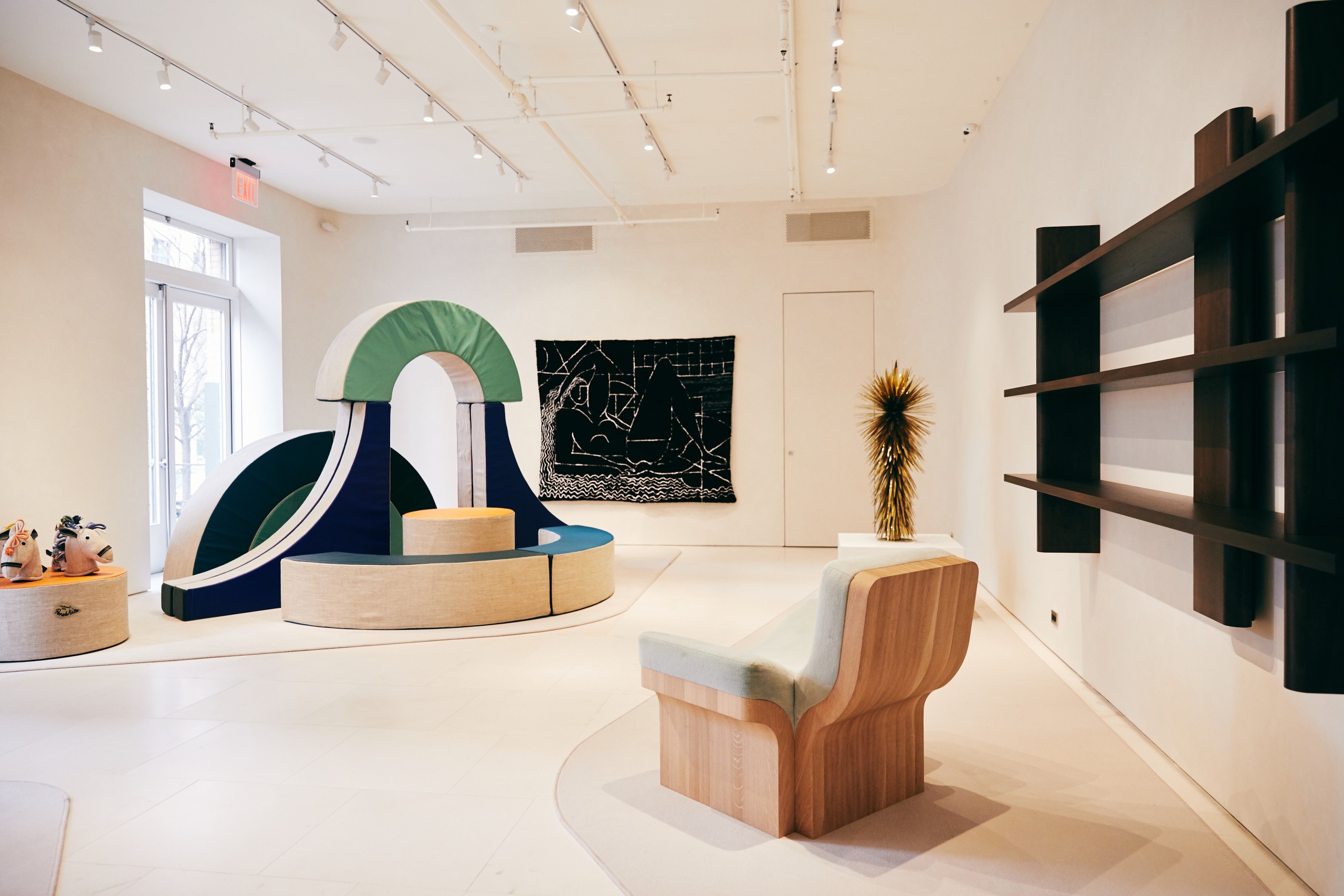EGG COLLECTIVE HONORS MOTHER ARTISTS
4 years ago by
We are thrilled to show a few pieces from Egg Collective’s new group exhibition, Designing Women III: Mother, featuring 29 international mother artists.
Co-Curated by Crystal Ellis, Hillary Petrie, Stephanie Beamer and Tealia Ellis Ritter, Mother III is inspired by the Harvard study that discovered a « motherhood penalty » (expanded upon below).
Read on to hear from the women behind this inspiring exhibition and the touching and inspiring ways in which they describe their own mothers.
And if you can, go see Mother III in Tribeca from May 3rd-May 28th.
Can you tell us a bit about what inspired your curatorial choices for this show?
This exhibition is by no means an exhaustive list of mothers in art and design; it is only a sliver of the brilliance that exists. During our selection process we sought out artists/designers operating at different points in their careers — some just starting, some in the midst, and some some trailblazers who are no longer with us — all of whom are / were mothers. We were also looking for women from different backgrounds; tin order to foster a dialogue that is manifold, the exhibition features artists and designers from multiple continents with different perspectives and approaches to their creative processes. Additionally, this exhibition ventures into the realm of fine art, which is new for us in the Designing Women Series, and led us to partner with the show’s co-curator Tealia Ellis Ritter.


Bow Chair, 2021 by Katrina Vonnegut / Vonnegut Kraft
Can you explain what the « Motherhood Penalty » is?
A Harvard study found that a large portion of the pay gap that exists between men and women can be explained by the “motherhood penalty,” which is essentially the belief that mothers are less committed to their jobs than their male counterparts, even if the men are also fathers, and are therefore not paid equally. In fact fathers typically receive a pay increase with the birth of each child as they are viewed as breadwinners, whereas mothers do not as they are seen as less committed or available for their jobs. A followup study looked at how society could best address this inequity and found that the most beneficial way to change the unconscious bias is to challenge the cultural norms that maintain those beliefs through both policy changes in the workplace and exposure to facts/experiences that show the norm to be false. The Mother show intends to challenge this norm by highlighting the work of female artists and designers that are also mothers, and are making notable contributions to the art and design landscape.
What are you hoping people walk away with after viewing the show?
All of the work in the show is incredible, and we hope people are blown away by seeing the works in conversation with each other. Upon reflecting on the theme of the show, we also hope people will think about their own biases, conscious or not, and take the time to reflect on how they view motherhood. How much cultural capital are we missing out on because support systems such as paid family leave, access to child care, protections in the workplace, flexible scheduling, etc don’t exist? We believe that we, as a society, need to fundamentally change the conversation and work to remove the hurdles that so many mothers and caregivers face when considering how to balance their family life and what it is they do for work.


Jumbo Coffee Table c. 1970 by Gae Aulent


How would you describe your own mother?
Stephanie Beamer:
One powerful lady. I can still hear the clack of her heels around the house as she headed to work in her power suit. My mother is not a self-proclaimed feminist, but she has always blazed her own trail – was the first college graduate in her family, and went on to become a doctor and the first female President of the Kansas Academy of Family Physicians. She kept her maiden name before it was a thing, and went so far to *try* to give her children her surname. She sacrificed a lot for her career, but was always there for me and showed me that anything was possible if you work hard enough.
Hillary Petrie:
My mom Kathy is in one word, a force. I believe she knew what she wanted from a very young age, and nothing since has stood in her way. Since becoming a mother myself, I’ve discovered a tremendous appreciation for my own mom and her ability to run a successful business, participate in the carpool, and put a hot dinner on the table every night, all with a seemingly effortless operation and the perfectly applied red lipstick to boot (the cigarette lighter-powered car curling iron is a another story altogether). She would start my car on Winter mornings and wrap a buttered bagel in the cup holder so that I wouldn’t be late for school. Does it get much better than that?


How would you describe your own mother?
Tealia Ellis Ritter:
My mother is the most complex being I know. Loving and kind, giving and trusting, brilliant and self doubting. She is a contradiction. She is also, as she frequently states, “a work in progress.” I appreciate that she never attempted to fit into the mold of a “traditional mother.” Her nonconformity has become my own freedom as a mother. She continues to define herself, rather than be defined.
Crystal Ellis:
Tealia and I are sisters so we are speaking about the same person when we describe our mother.
I would describe her as the most loving, curious, and adventurous person I know. When I was young, she felt like an unstoppable and fearless creature. I remember her building structures with her bare hands, wielding a circular saw in our garage while cutting up a sheet of plywood or a 2 x 4. She painted a massive mural on the wall of my childhood bedroom. She ran triathlons. Despite her grit, she was, and still is, the gentlest person I know. She would rock me to sleep as a child when I was sick or sad in an antique rocking chair in our living room. I remember her patiently teaching me how to draw the proportions of a face, how to shade an object, and how to mix paint colors. She let me have just about any pet I wanted (except a chinchilla, lol) including a couple of snakes because she saw in me an extreme curiosity for the natural world. Now in my adulthood I see her more fully. She is still that strong and gentle woman I knew as a child, but she is also something much more complex — Not just my mother, but a mortal with her own identity, history, desires, limits, and flaws. Seeing the complexity in her is inspirational. We are not simple creatures, and we shouldn’t strive to be.


TBT, 2020 by Carolyn Salas
First image: Salute, 2017 and Kick, 2017 by Hannah Whitaker
Drape Cabinet A and B, 2005 by Maria Pergay






























































